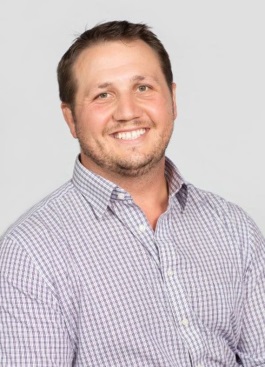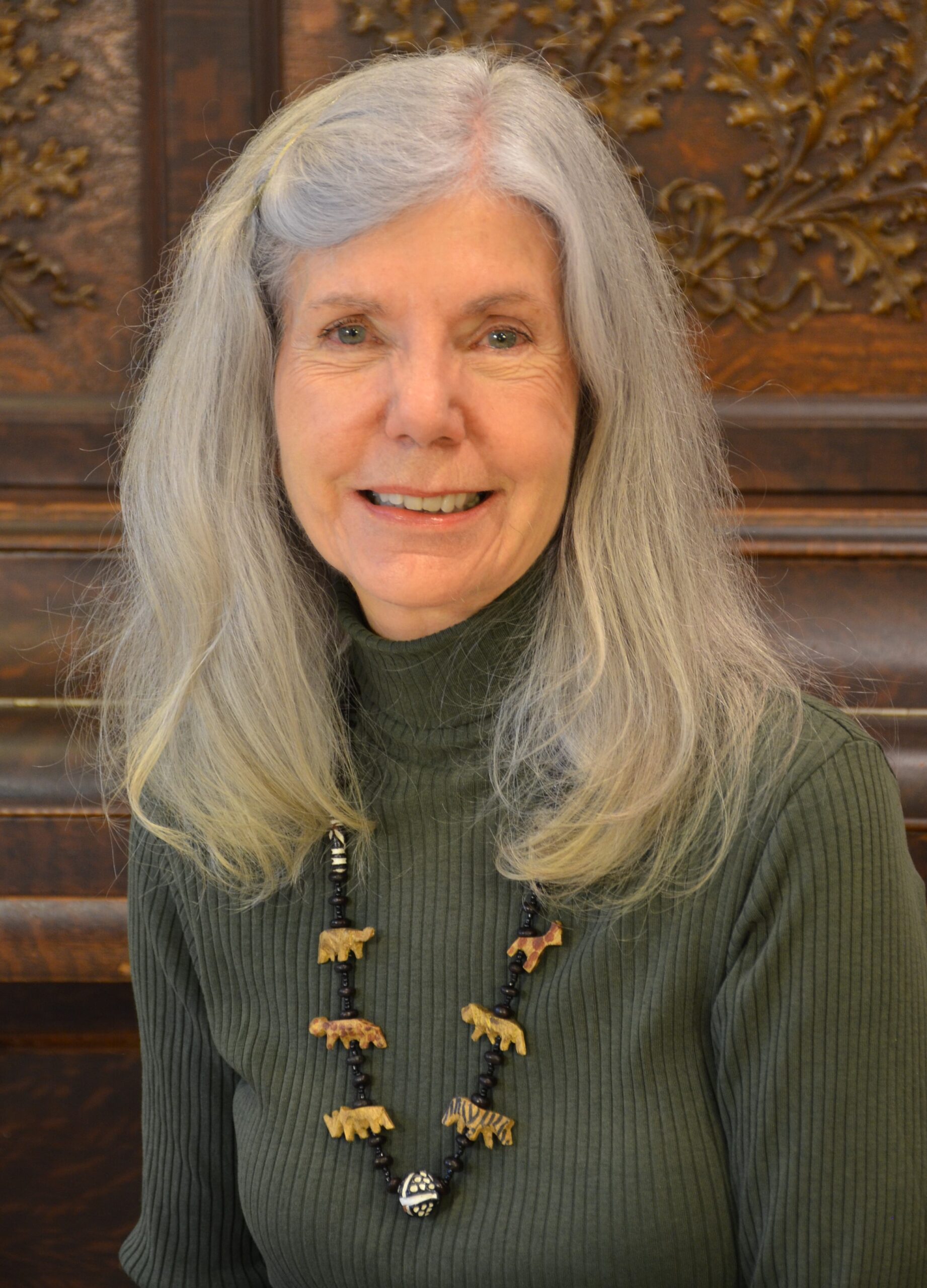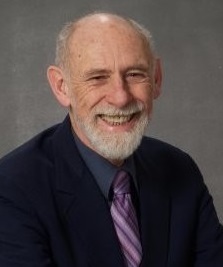Keynote Panel: Raising the Cloak of Invisibility for Vulnerable Populations
Following the welcome until 10:15, four speakers will present information about their respective agricultural population, moderated by Athena Ramos. Following those presentations, Drs. Cornelia and Jan Flora will summarize some of the key points of the presentations, including commonalities and differences. The session will end with discussion among the speakers and questions from the audience.
 Moderator: Athena Ramos, PhD, MBA, MS, CPM, is an Assistant Professor in the Department of Health Promotion and is affiliated with the Center for Reducing Health Disparities and the Central States Center for Agricultural Safety and Health (CS-CASH) at the University of Nebraska Medical Center (UNMC) in Omaha, Nebraska. She leads a Latino outreach and engagement team and serves as principal investigator for a number of community-based health and social research and education initiatives in such areas as agricultural health and safety, immigrant integration, and community well-being. She is an experienced administrator, program manager, and researcher with proven ability to develop and implement social, health, and human service programs with culturally diverse populations. She has nearly 20 years of experience in health promotion, strategic thinking, community development, and public relations.
Moderator: Athena Ramos, PhD, MBA, MS, CPM, is an Assistant Professor in the Department of Health Promotion and is affiliated with the Center for Reducing Health Disparities and the Central States Center for Agricultural Safety and Health (CS-CASH) at the University of Nebraska Medical Center (UNMC) in Omaha, Nebraska. She leads a Latino outreach and engagement team and serves as principal investigator for a number of community-based health and social research and education initiatives in such areas as agricultural health and safety, immigrant integration, and community well-being. She is an experienced administrator, program manager, and researcher with proven ability to develop and implement social, health, and human service programs with culturally diverse populations. She has nearly 20 years of experience in health promotion, strategic thinking, community development, and public relations.
Speakers:
Immigrants & Migrants
 Seth M. Holmes, PhD, is Associate Professor in the UC Berkeley School of Public Health’s Community Health and Human Development Division and the Graduate Program in Medical Anthropology. He is Co-Director (with Ian Whitmarsh) of the MD/PhD Track in Medical Anthropology coordinated between UCSF and UC Berkeley and Co-Chair (with Charles Briggs) of the Berkeley Center for Social Medicine. Holmes is currently investigating social hierarchies, health, health care and the naturalization and normalization of difference and inequality in the context of transnational US-Mexico immigration. This project led to the publication of the book, “Fresh Fruit, Broken Bodies: Migrant Farmworkers in the United States”. In addition to academic articles and the book, Holmes has written about this research for Salon.com, Access Denied, and The Huffington Post and has been interviewed on multiple NPR, PRI, Pacifica Radio, and Radio Bilingue shows.
Seth M. Holmes, PhD, is Associate Professor in the UC Berkeley School of Public Health’s Community Health and Human Development Division and the Graduate Program in Medical Anthropology. He is Co-Director (with Ian Whitmarsh) of the MD/PhD Track in Medical Anthropology coordinated between UCSF and UC Berkeley and Co-Chair (with Charles Briggs) of the Berkeley Center for Social Medicine. Holmes is currently investigating social hierarchies, health, health care and the naturalization and normalization of difference and inequality in the context of transnational US-Mexico immigration. This project led to the publication of the book, “Fresh Fruit, Broken Bodies: Migrant Farmworkers in the United States”. In addition to academic articles and the book, Holmes has written about this research for Salon.com, Access Denied, and The Huffington Post and has been interviewed on multiple NPR, PRI, Pacifica Radio, and Radio Bilingue shows.
Indigenous/Native American
 Sean A. Bear, BA, CADC, is co-director of the American Indian & Alaska Native Addiction Technology Transfer Center at the University of Iowa. He earned his B.A. in psychology/human services from Buena Vista University in 2002 and studied mental health counseling at Drake University for 2 years. He is a member of the Meskwaki Tribe, in Tama, Iowa, and has worked with Native Americans with Substance Use disorders for many years. He is an Army Veteran of 9 years, honorary discharged from the 82nd Airborne. He has experience in building holistic; Native American based curriculum, and implementation with substance abuse clientele. His passion is to assist people in overcoming their substance use issues as well as other issues, and to return to the spiritual ways of their ancestors. It is his hope that one day, people of all nations will co-exist and live in peace and harmony, not just with each other, but within themselves, as well as to come to the realization of what our ancestor of long ago already knew, “that we are all brothers and sisters under one Creator.”
Sean A. Bear, BA, CADC, is co-director of the American Indian & Alaska Native Addiction Technology Transfer Center at the University of Iowa. He earned his B.A. in psychology/human services from Buena Vista University in 2002 and studied mental health counseling at Drake University for 2 years. He is a member of the Meskwaki Tribe, in Tama, Iowa, and has worked with Native Americans with Substance Use disorders for many years. He is an Army Veteran of 9 years, honorary discharged from the 82nd Airborne. He has experience in building holistic; Native American based curriculum, and implementation with substance abuse clientele. His passion is to assist people in overcoming their substance use issues as well as other issues, and to return to the spiritual ways of their ancestors. It is his hope that one day, people of all nations will co-exist and live in peace and harmony, not just with each other, but within themselves, as well as to come to the realization of what our ancestor of long ago already knew, “that we are all brothers and sisters under one Creator.”
Children
 Casper “Cap” Bendixsen, PhD, is Director of the National Farm Medicine Center (NFMC) which includes the National Children’s Center for Rural and Agricultural Health and Safety. He joined the team at NFMC after earning his doctorate in anthropology from Rice University, where he studied the cultural values and ethics of US ranchers. Bendixsen’s current projects include the Wisconsin Infant Study Cohort (WISC), conducted with the University of Wisconsin, which is investigating why children who grow up on farms have stronger immune systems. He’s a national leader in working with rural firefighters to deliver agricultural safety and health information to their communities. Other projects focus on young farmers and ranchers, veterans and occupational exposures involving the dairy microbiome. Bendixsen was raised on a farm and ranch in southeast Idaho. He has worked as a cowboy, firefighter and EMT-B. He is father to two beautiful daughters.
Casper “Cap” Bendixsen, PhD, is Director of the National Farm Medicine Center (NFMC) which includes the National Children’s Center for Rural and Agricultural Health and Safety. He joined the team at NFMC after earning his doctorate in anthropology from Rice University, where he studied the cultural values and ethics of US ranchers. Bendixsen’s current projects include the Wisconsin Infant Study Cohort (WISC), conducted with the University of Wisconsin, which is investigating why children who grow up on farms have stronger immune systems. He’s a national leader in working with rural firefighters to deliver agricultural safety and health information to their communities. Other projects focus on young farmers and ranchers, veterans and occupational exposures involving the dairy microbiome. Bendixsen was raised on a farm and ranch in southeast Idaho. He has worked as a cowboy, firefighter and EMT-B. He is father to two beautiful daughters.
Women
 Knesha Rose-Davison, MPH, is the Public Health Program Director for AgriSafe Network. She obtained her Bachelor of Science in Biological Sciences (2002) and a Master’s of Public Health (2006) from Northern Illinois University. In June 2016, she obtained a certificate in Agricultural Medicine which focused on rural occupational health and environmental health and safety. Her program focus areas are Opioid Misuse, Young Workers, and Women’s Health. Knesha is the staff lead for three programmatic areas which include worker safety training (OSHA), Invest in Your Health and healthcare provider targeted opioid misuse prevention trainings. She has dedicated her career to health education and promotion to underserved and vulnerable communities.
Knesha Rose-Davison, MPH, is the Public Health Program Director for AgriSafe Network. She obtained her Bachelor of Science in Biological Sciences (2002) and a Master’s of Public Health (2006) from Northern Illinois University. In June 2016, she obtained a certificate in Agricultural Medicine which focused on rural occupational health and environmental health and safety. Her program focus areas are Opioid Misuse, Young Workers, and Women’s Health. Knesha is the staff lead for three programmatic areas which include worker safety training (OSHA), Invest in Your Health and healthcare provider targeted opioid misuse prevention trainings. She has dedicated her career to health education and promotion to underserved and vulnerable communities.
Analysis & Reflection
 Cornelia Flora, PhD, is an Emerita Distinguished Professor in the Department of Sociology at Iowa State University, where she served 15 years as Director of the North Central Regional Center for Rural Development. She is a Research Professor at Kansas State University, where she served as Director of the Population Research Laboratory. Other positions include Program Director for Agriculture and Rural Development for the Andean Region and Southern Cone in Latin America for the Ford Foundation and Chair of the Department of Sociology at Virginia Polytechnic Institute and State University. She has published 13 books, with a 14th co-authored book in preparation. She has served as president of the Rural Sociological Society, the Agriculture, Food and Human Values Society, and the Community Development Society. Her B.A. degree is from the University of California at Berkeley and her MS and PhD degrees are from Cornell University.
Cornelia Flora, PhD, is an Emerita Distinguished Professor in the Department of Sociology at Iowa State University, where she served 15 years as Director of the North Central Regional Center for Rural Development. She is a Research Professor at Kansas State University, where she served as Director of the Population Research Laboratory. Other positions include Program Director for Agriculture and Rural Development for the Andean Region and Southern Cone in Latin America for the Ford Foundation and Chair of the Department of Sociology at Virginia Polytechnic Institute and State University. She has published 13 books, with a 14th co-authored book in preparation. She has served as president of the Rural Sociological Society, the Agriculture, Food and Human Values Society, and the Community Development Society. Her B.A. degree is from the University of California at Berkeley and her MS and PhD degrees are from Cornell University.
 Jan L. Flora, PhD, is Emeritus Professor of Sociology at Iowa State University and Research Professor of Sociology at Kansas State University. He and Cornelia Flora co-authored “Rural Communities: Legacy and Change”. They also consult with the Federal Reserve System on indicators of community capitals and the Community Reinvestment Act. He studies Latino entrepreneurship and the contribution of dual language programs in Iowa. Many moons ago, he and Cornelia shared a position at the Ford Foundation in South America as Agriculture and Rural Development Program Officer. He has done research and consulted in Latin America, Uganda, Kenya, Malawi, Cape Verde Islands in Africa, China and Australia. He taught courses on rural development in Spain and Peru. He speaks fluent Spanish. His Portuguese is a bit rusty. His English is improving. Jan is a passionate volunteer with AMOS (A Mid-Iowa Organizing Strategy, an Industrial Areas Foundation affiliate), currently working on housing instability in Ames, sustainable livelihoods for low income adult workers, and in support of rational immigration policies. He is on the board of Project IOWA, a wraparound jobs program for low income adults; The Land Institute in Salina, KS, and the Child and Family Policy Institute.
Jan L. Flora, PhD, is Emeritus Professor of Sociology at Iowa State University and Research Professor of Sociology at Kansas State University. He and Cornelia Flora co-authored “Rural Communities: Legacy and Change”. They also consult with the Federal Reserve System on indicators of community capitals and the Community Reinvestment Act. He studies Latino entrepreneurship and the contribution of dual language programs in Iowa. Many moons ago, he and Cornelia shared a position at the Ford Foundation in South America as Agriculture and Rural Development Program Officer. He has done research and consulted in Latin America, Uganda, Kenya, Malawi, Cape Verde Islands in Africa, China and Australia. He taught courses on rural development in Spain and Peru. He speaks fluent Spanish. His Portuguese is a bit rusty. His English is improving. Jan is a passionate volunteer with AMOS (A Mid-Iowa Organizing Strategy, an Industrial Areas Foundation affiliate), currently working on housing instability in Ames, sustainable livelihoods for low income adult workers, and in support of rational immigration policies. He is on the board of Project IOWA, a wraparound jobs program for low income adults; The Land Institute in Salina, KS, and the Child and Family Policy Institute.
|
Keynote Session Recording Coming soon.
|
Resources: From Athena Ramos: 2nd Annual Bison Worker Safety and Herd Health Roundup
From Knesha Rose-Davison: Sexual Harassment Prevention from the Pacific Northwest Agricultural Safety and Health CenterAgriSafe resources about women’s health From Seth M. Holmes: Book: Fresh Fruit, Broken Bodies: Migrant Farmworkers in the United States
Midwest: National Resources: Structural Competency Resources
Film:First Time Home is a participatory documentary short film about 4 Triqui youth farmworker filmmakers, their binational families and their work. There is also an NPR interview with some of the filmmakers.
From Jan and Cornelia Flora: Book: Rural Communities: Legacy and Change, 5th Edition |


